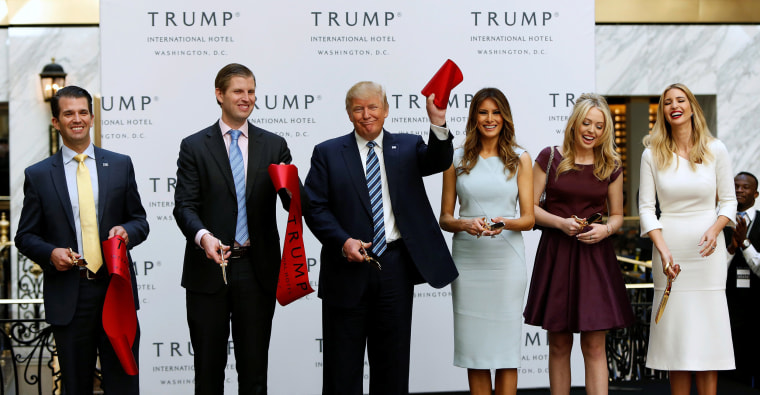The Supreme Court may punt on what is arguably the most politically charged case of the 2020 term. Predictably, it involves President Donald Trump and his financial records. The court will be ruling on whether Trump’s accountant and some of his lenders have to turn over financial information to congressional committees. Trump has intervened in the cases, ordering that no information be released to lawmakers.
The case will be heard on Tuesday, but the drama has been building for weeks.
The case was heard on Tuesday, but the drama has been building for weeks. On April 27, the court asked whether or not the dispute between Congress and Trump is a political question, meaning whether the question should be left to the two political branches, not the judiciary. The fact that the court asked for briefing on this issue suggests it is looking for a way to obfuscate its responsibility. And in fact, the president, the Department of Justice and the House all agree that the doctrine does not apply.
The dispute actually involves two related cases. The first case asks whether a congressional committee has the constitutional and statutory power to subpoena the accountant for Trump and some of Trump’s lenders for the billionaire's financial records. The second case asks whether a subpoena issued by a state grand jury to Trump’s accountant is subject to precedent regarding political questions.
The Supreme Court owes it to us to describe the breadth and depth of Congress’ oversight authority over a president and the president’s power to push back against that authority. Throwing up its hands and passing the buck would have grave implications not just for this case, but also for lawmakers' ability to police future presidents.
Let’s begin at the beginning. Congressional committees have said they issued subpoenas for Trump financial recordsbecause they are looking into whether current federal ethics laws are sufficient and investigating the scope of foreign influence in our domestic elections. The Supreme Court has recognized that Congress has the power to perform certain investigations related to legislation and executive oversight. Trump has countered that the congressional committees are merely on a fishing expedition, and thus the subpoenas fall outside of Congress’ authority.
Typically when there is a dispute between the legislative branch and the executive branch over congressionally issued subpoenas, both sides negotiate and each party gives a little. But in this case, Trump has intervened not to fight the scope of the subpoenas, but to wholesale reject them.
This is not new behavior from Trump. He was impeached, in part, for directing others not to comply with congressional subpoenas regarding whether or not he pressured the Ukrainian government to dig up dirt on former Vice President Joe Biden.
Still, this dispute is different. It is the judiciary’s role to step in and enforce valid subpoenas. The Supreme Court, however, can refuse. The political question doctrine is a rule that allows courts to stay out of certain disputes, particularly those made by a political branch or between the two political branches. The idea is that courts are the proper places to resolve legal disputes, not political ones.
The current standard to apply when determining whether a case presents a political question is whether there is "a textually demonstrable constitutional commitment of the issue to a coordinate political department; or a lack of judicially discoverable and manageable standards for resolving it." In something closer to plain English, this means a dispute is considered a political question if the Constitution indicates another branch of government has the power to make a decision without review or if there is not a good alternate method for resolving that dispute.
For instance, the Supreme Court has used the political question doctrine to stay out of disputes over a president’s decisions regarding foreign affairs, Congress’ determinations about impeachment procedures and state legislatures’ decisions regarding partisan gerrymandering.
In sum, the political question doctrine is a way for courts to avoid making politically charged decisions.
The Supreme Court may earn a short-term win by washing its hands of this messy dispute between Congress and Trump. But the long-term losers are the American public. Nowhere in the Constitution does it explicitly say that judges should rule on legal disputes — unless they are politically messy. There is no unambiguous constitutional carve-out for judges who prefer to avoid politically heated legal questions.
The bottom line is that if the court concludes this dispute between Congress and Trump is a political question, we may never see Trump’s financial records.
But more broadly, if the court finds that this dispute is a political question, it would suggest Congress lacks the authority to enforce at least some its subpoenas (although there are still other unrelated subpoenas pending).
So the next time a congressional committee subpoenas the president or the president's accountants or business associates, they may be able to just refuse to comply. And the American public loses when there is no one watching its chief executives.


